The latest extension of the alarm state paves the way for a new normality that is still unknown
The Ministry of Health will delegate to the regions the competence to decide on the flexibility, modification and even duration of the measures over territories in phase 3 of the de-escalation as of Monday, June 8th. The state of alarm continues, but the new and last extension, approved this Wednesday and which will be in force until June 21st, transfers the powers to the autonomous regions and may even reach before time what has been called the ‘new normality’. A scenario that is not yet defined but whose “prevention, containment and coordination measures” will be specified on Tuesday in a law decree, as Pedro Sánchez has explained in Congress.
Technicians from Health and other ministries are currently working on that document. The Government does not give details at the moment about the process, although, according to president Sánchez, the content of the decree will be discussed before in an Inter-territorial Council with all the autonomous councilors that will be led by Minister Salvador Illa. Fernando Simón, director of the Center for Health Alerts and Emergencies, specified this Wednesday that the text “is being discussed now and we have to review it, probably tonight”.
“The decree that will regulate the ‘new normality’, the stage of our lives that will go from the end of the state of alarm until the COVID-19 is controlled with a vaccine or a very effective treatment, this will feature not only sanitary measures but also related with transport and with commerce”, Simón stated. Regarding the strictly sanitary issues, it will have to guarantee above all “the assistance capacity, the fluidity of the data, and the supplies”. Illa has mentioned aspects that will surely be present in the daily life of the coming months, while “we learn to live with the virus”: “The interpersonal distance of two meters, the use of the mask in the stipulated conditions, and constant higiene”.
Don’t let your guard down
The ‘new normal’ will not only reach Spain but all the countries attacked by the pandemic, as they emerge from the de-escalation of confinement. But not even the World Health Organization (WHO) can define for sure what this exactly means. In any case, the criteria of the WHO and Government have not always coincided: the WHO still does not recommend masks to the entire population to reserve them for the healthcare workers, while the Spanish Executive has made them mandatory for everyone whenever the safety distance cannot be maintained. After the state of alarm, Health ministry will continue to recommend them as a minimum.
“It is very important to understand that nobody has a map of the ‘new normal’. I speak worldwide. It is an unknown and unexplored territory that is about to be built and in which we have never been”, illustrates Daniel López-Acuña, former director of Acción Health in Crisis Situations of the WHO and professor at the Andalusian School of Public Health. What is clear is that this new context will be different and will have to deal with a horizon in which we do not know how the virus will behave and if there will be a second epidemic wave in the fall that will force again to impose restrictive measures.
The ‘new normal’, wields López-Acuña, “means not to let your guard down”: neither as regards sanitary capacities nor the “responsibility of the population” when it comes to complying with hygiene and safety measures. In other words, the system should continue to count on an extra muscle of resources and epidemiological surveillance to detect transmission chains and control possible outbreaks through early detection, racking and surveillance of cases and their contacts. On the other hand, the specialist points to the need for “a common framework at the state level” because “there cannot be 17 different ‘new normalities’”, he says, referring to the 17 regions.
No crowds or mass events
Beatriz González López-Valcárcel, professor of Public Health and part of the scientific committee of the Canary Islands government, recognizes that, even without a decree, they are not clear on what the ‘new normality’ will consist of. In the debates, “what worries us most in the Canary Islands is, on the one hand, what to do with tourism, which is our way of life. How two conflicting interests are reconciled: minimizing the risks of contagion but opening up the economy. The virus came here from the outside, and we know that it will come again from the outside. Regarding education, we talked about how to do it for a long time. And, of course, how to return to normality within the health sector itself”.
Regarding social interactions, López-Acuña details some ideas and stresses that “the behavior of distancing is going to have to continue and we must encourage very cautious behavior”. López-Valcárcel agrees, who relies more on “social control, in which all of us as citizens are responsible” than in coercive measures that may be stipulated. In addition, the former director of Health Action in crisis situations at the WHO focuses on nursing homes, which have been hit hard by the pandemic and which, since they have a vulnerable population, “must be vigilant and take precautions” also in this new stage.
All the specialists consulted are clear that large agglomerations should not be part of this ‘new normal’. Ildefonso Hernández, spokesman for the Spanish Society of Public Health (SESPAS) summarizes it in that “it will be a reinforcement of the issues that we have been establishing these months”, such as not meeting too many people. “Until there is a vaccine or I think that mass events or discos can be held. The virus is still there, it does not go away with the state of alarm”, says López-Valcárcel.
Reform of the Public Health Law
Another great question is how exactly the regulation of the ‘new normal’ will be carried out. There are several ways, but having anticipated that it will be by a royal decree-law, Juan Luis Beltrán, president of the Transparency Council of Navarra and former president of the Association of Health Jurists, bets on a modification of the General Law on Public Health of 2011: “It is an ideal norm for this that can be modified and expanded, that’s what it is for. It can contemplate everything other than restrictions of fundamental rights“. So adding paragraphs would be enough to legislate on masks, crowds and health services, he explains, under penalty of administrative sanction for citizens if it is not complied with and that the communities will apply as health authorities no longer in a state of alarm.
“The law itself appeals to individual responsibility, with high penalties of thousands of euros”, continues Hernández. Although it was thought for things of less importance than the current ones, which is why everyone agrees that it would require expansion. It is a General Law so it is not valid for measures that restrict fundamental rights, as in the case that at some point it is necessary to confine territories again. For that, it would be necessary to resort, according to the criteria of Juan Luis Beltrán, to the Organic Law of Special Measures in Public Health, of 1986, which already includes the possibility of isolating people for health reasons “but not entire communities, but areas with For example, it was possible to quarantine people in a hotel in Tenerife in February, so that it can limit fundamental rights it would also have to be extended, but it would be another process: the government would have to request an urgent modification to the Congress”.
Source: Eldiario.es
ERTEs are extended until July and are dissociated from the state of alarm
The management bodies of the employers and of the main unions ratified the agreement that their managers had reached at the last minute with the Ministry of Labor, according to which the ERTE designed by the Government after the declaration of the state of alarm are extended until the June 30th.
In this way, they are disconnected from the political decision to extend this exceptional situation and both the Ministry of Labor and the social agents undertake to evaluate its expansion beyond that date based on the economic conditions of the sectors and companies affected, according to the text to which the Government also gave the approval and approved in the Council of Ministers.
“This is a balanced agreement based on the value of social dialogue in which we all committed”, said the Minister of Labor, Yolanda Díaz, at the press conference after the extraordinary Council of Ministers, in which she also recognized the negotiating effort of the social partners. “They have demonstrated their commitment and that they are at the height of their country’s history at a time as difficult as this”, Díaz praised.
Along the same lines, the President of the CEOE, Antonio Garamendi, acknowledged that all the parties had to be flexible, and put social dialogue as an example of the effort that the country needs at all times in all its spheres.
It was not easy for the president of the businessmen to convince the CEOE leadership to sign the agreement. The stumbling block to the condition of maintaining employment during the six months after the end of the ERTE continues to be difficult in sectors especially affected by this crisis.
The CEOE wanted to erase the condition of maintaining employment the following six months
In the official statement issued by the employers following the meeting of its management committee, it is recognized that “a longer-term agreement would have been desired that would have given security and certainty to companies and workers, to accompany them in the process of full recovery of the activity”. But it also recognizes that “within the Government’s time and budget margins, the agreement improves the initial proposal”.
The truth is that the CEOE negotiating team has managed to initiate not inconsiderable changes for its interests. On the controversial issue of job maintenance, although the requirement to keep jobs for the six months after returning to activity remains, the employers have achieve an exception. Companies that demonstrate the risk of entering bankruptcy will not have this obligation.
On the other hand, Labor maintains the requirement that companies that have activity in tax havens or distribute dividends cannot access the advantages of ERTE due to force majeure, but at this point it has also made concessions. The requirement is maintained only for those who on February 29th, 2020 had more than 50 employees. In other words, it frees SMEs from this obligation and also establishes that large companies will be able to distribute dividends if they return the Social Security contributions from which they had been exempted, compared to the initial requirement that they intended to also return the benefits they would have received. your workers.
A commission is created to evaluate sectors that can continue in ERTE from July
Another novelty agreed by Labor and social agents is the possibility that ERTEs can be extended beyond June 30th depending on the sanitary conditions of economic opening of companies and territories.
To channel this possibility, a tripartite commission has been created in which Labor, unions and employers will work to define which sectors and companies meet the conditions that allow them to expand the ERTE.
Even so, the agreement contemplates incentives to return to business activity by lowering the exoneration of contributions and quotas for workers during the months of May and June for employees who remain in ERTE and expanding it for those who return to work.
Source: LaVanguardia.com
The Spanish government implements four phases for de-escalating the confinement measures until June
The President of the Government, Pedro Sánchez, presented last Tuesday the de-escalation plan after the approval by the Council of Ministers. The Spanish population has been waiting for this plan after more than six weeks of confinement due to the coronavirus pandemic. The plan will consist in four phases, with a period of 15 days between each phase, as long as “the evolution of the pandemic continues to be favorable and under constant evaluation by the corresponding institutions“.
The president stated that “the phases will last a minimum of two weeks because this is the average incubation time of Covid-19. In this way, we can make decisions based on the effects that each phase has had on each territory”. President Sánchez also confirmed that mobility between provinces and islands will continue to be restricted to the ones contemplated in the state of alarm decree.
The progress between phases will be determined by objective criteria based on parameters that will show the disposition of each province: healthcare capacity, both in primary care and hospital care, and in the number of ICU beds in each of the territories. It will also be taken into account the epidemiological situation in each area, with diagnoses and identification of the pandemic; implementation of joint protection measures in public spaces, and mobility and socioeconomic data.
Phase 0:
The phase zero, which is the first phase, has already begun. It is about preparing the transition to deconfinement and the start of “relief” measures such as the one allowing minors to go out last Sunday or the possibility of outdoor sports and small walks from May 2nd onwards.
In addition, “small activities” of economic nature will be allowed by appointment. For example, restaurants with home delivery service can open but there will be no consumption possible inside. The preparation of all public spaces will also be intensified, with appropriate signalization of protective and hygienic measures, and the training of professional athletes will be allowed.
Even though “the back-to-normal measures are gradual and coordinated”, they will also be asymmetrical according to the particular situation of each province. Therefore, all the territories are expected to be in phase zero on May 4th. However, Formentera, La Gomera, El Hierro and La Graciosa islands “due to their favorable evolution”, will start phase one on the same day.
Phase 1:
President Sanchez points out that from May 11th onward all provinces will start phase one and, from then on, the evaluation will be individual and every two weeks. “We will implement the phases at different speeds, and we will not go to the next phase until we have consolidated the previous one”, explained president Sánchez as he remarked that each territory will have its own rhythm.
This period will be characterized by the fact that in each province, some small commercial activities will begin. This will not be the case for large shopping centers or commercial parks. In the tourism sector, for example, the opening of terraces will only be at 30% of its capacity. Additionally, hotels will return to operate excluding common areas.
This phase will also include preferential hours for the elderly (over-65) in some premises, as well as a one-third occupancy rate regulations in places of worship for religious events. The use of masks will be highly recommended in the public transport.
Phase 2:
If phase one is properly conducted and no further outbreaks occur, phase two will begin with the opening of premises to one-third of its total capacity. Schools will also open to all those families with children under six years of age so that they can attend to their educational centers while their parents are working. Hunting and sport fishing will be once again allowed and cinemas and theaters will open with one-third of their capacity operational and assigned seats.
Exhibitions and monuments may be visited again, and cultural shows with less than 50 people will be allowed as limited capacity. In the case of events in public spaces, the total number of attendees may be 400, provided that they are seated.
Phase 3:
Phase three, which will be the most advanced and the last before resuming normal life, will only come if all the required parameters are met. During this period, mobility will be more flexible but with the recommendation of the use of masks in public spaces and transportation. Furthermore, in touristic sector, the measures will be softened, but it will be necessary to continue taking into consideration the measures of social-distancing and hygiene.
“The social restrictions will end, but the hygiene measures will have to be maintained. It must be this way until a vaccine to cure the coronavirus is found“, said president Sánchez. He also pointed out that mobility between provinces can only be resumed when the ‘new normal’ has been reached, not before, especially if we consider that there may be territories in different phases.
If everything happens as the Government expects, the last phase could be finished in a six-week time. In that case, June 22nd could be the date of the total ‘new normality’ in Spain. In the worst-case scenario, if the evolution does not go as expected in some territories, the de-escalation will last up to eight weeks and the final date of de-escalation could be June 29th.
Source: Elconfidencial.com
Extension of the economic measures taken by the Spanish Government due to Covid-19
The Government makes the ERTE more flexible for workers in the tourism sector
The Council of Ministers approves the reduction to zero of VAT applicable to the supply of medical equipment of national products to public entities and hospitals
The Government has given green light to a new package of economic measures to ease the consequences of the unprecedented crisis the country is facing due to the coronavirus pandemic. The 30 measures that have been taken cover various areas such as employment and fiscal policy to reach those groups that have been left unprotected until now. Among others, the Executive will make access to Temporary Employment Regulation Files (ERTE) more flexible, provide coverage for permanent discontinuous workers and those who would have been out of work when the state of alarm was declared, and introduce taxation measures to provide greater liquidity to SMEs and the self-employed workers.
In particular, the Executive will facilitate access to ERTE or unemployment benefits for permanent discontinuous or seasonal workers. This measure benefits above all the tourism sector, one of the most affected sectors by the economic downturn and which does not yet have a clear date for resuming activity. When the crisis began, many of these workers had not yet taken up their positions. Now they will have a 90-day allowance even if they have exhausted their unemployment or have not contributed for long enough. The measure will benefit, above all, the most touristic communities and, in particular, the Balearic Islands, where this type of contract is used the most.
The Council of Ministers has also approved the flexibilization of the ERTE due to force majeure for companies in sectors considered essential that have suffered significant losses in their income: “a distinction will be made between workers who carry out the tasks called essential by health authorities and those who do not in a given company,” clarifies the Ministry of Labor in a press note. The Government has also given green light to the two-month extension of teleworking as the primary alternative for those who can carry out their business from home with the possibility for workers to adapt their working hours.
In addition, coverage has been extended for workers whose contracts have been terminated since 9th March, or voluntarily terminated since 1st March because they accepted a binding job offer that has lapsed. It is estimated that 2,700 people have been unable to access unemployment benefits because their employment relationship was terminated during the trial period at the request of their employer or because the employer withdrew from the contract. It is also foreseen that self-employed workers who have not yet chosen a mutual fund to manage social security benefits may choose one at the same time as they apply for the severance benefit.
Other new features approved this Tuesday are aimed at the rentals of commercial properties: SMEs and self-employed workers in difficulty will be able to renegotiate and defer rentals with large holders and public companies. In the case of other types of owners, the use of the deposit will be facilitated as a complementary mechanism to the agreements between landlords and tenants. In addition, the ICO guarantee line will be extended to cover not only loans requested through the banking system, but also promissory notes from the alternative fixed-income market; the capacity of the autonomous communities’ mutual guarantee societies will be increased by strengthening the revaluations of the Compañía Española de Reafianzamiento (Cersa) and the Consorcio de Compensación de Seguros will be empowered to act as a reinsurer of credit insurance risks.
“These are horizontal measures and some more specific measures to adapt the regulations applicable to certain sectors for this new phase of extension of the state of alert,” said the Vice President of Economic Affairs, Nadia Calviño, at the press conference following the Council of Ministers on Tuesday.
Fiscal measures
The Executive has also approved new tax measures for the self-employed workers and SMEs, as announced last week by the Finance Minister and Government Spokeswoman, María Jesús Montero.
Specifically, the self-employed workers under modular regime may exceptionally move to tax by direct assessment without having the obligation to remain in this system for three years, as established by current regulations. In 2021 they will be able to return to the modular regime if they so wish. In the case of SMEs, they will be able to modify their system of fractionated payment of corporate taxes based on their effective quarterly profits instead of based on the income of the previous year, an option that can usually only be chosen until February. This way, they will be able to reduce payments on account and reflect the real losses they have suffered. It is a matter of “aligning tax bases to the real situation” to ” release more than 1.1 billion euros of liquidity” for these groups, Calviño said.
The self-employed workers who decide to stay in the modular regime will nevertheless have access to a tax reduction: the Executive has established that the fractioned payments of income tax and VAT will be discounted on the calendar days under the state of alarm. According to the estimations made by the Ministry of Finance, this measure will save 30 million euros in the first quarter and 362,000 taxpayers will benefit from it in income tax payments and another 200,000 in VAT payments. In addition, SMEs will be able to make payment of tax debts subject to obtaining an ICO credit, if they have requested one.
Calviño has also announced a reduction to zero of VAT for imports from third countries and purchases within the EU and Spain of healthcare material aimed for public entities, clinics and hospitals or private social entities until July 31st. According to the Government, this exemption will mean a saving of 1,022 million euros. It has also approved, as already anticipated, a reduction in VAT on books, magazines and electronic newspapers from 21% to 4%.
The Government has also approved exceptional reductions and deferrals for the maritime ports, which will enable companies operating in the sector to save around 100 million euros. Beneficiary companies will, among other things, enjoy reductions in the rate of occupation and will be able to request deferrals of up to six months in the payment of port charges.
Source: ElPaís.com
Industry foresees 50 million euros in aid to companies affected by the coronavirus crisis
The Ministry of Industry, Commerce and Tourism has approved a new aid amounting to 50 million euros to “companies that had to significantly alter their production to adapt to the needs generated by the Covid-19 health crisis”.
This is stated in the budget impact report of the decree law approved this Tuesday by the Council of Ministers in which the facilities provided by the Government to the industry in the face of the coronavirus emergency are quantified.
Within the support for industries, the Government has expanded the budget of the Compañía Española de Reafianzamiento (Cersa), within its guarantee line for the crisis, granting a credit supplement of 60 million euros from the ‘Support for Small and Medium-sized Enterprises’ program.
This Covid-19 line of guarantees has an amount of 1,000 million euros of risk assumed by Cersa and will allow mobilizing 2,000 million euros of financing to companies, benefiting 20,000 pymes.
All this in a section dedicated to the support of industries, which modifies the deadlines to present guarantees to the calls for loans granted by the General Secretariat of Industry and Small and Medium Enterprises (SGIPYME), which were pending resolution when it entered the alarm state is in effect.
In the decree law, the Government opens the door to exempt the return of the financing of Industry by the companies that accredit a fulfillment that “approaches significantly to the total fulfillment and it is verified that the objectives of the project have been reached initially raised”.
In these cases, 100% compliance with the project will be considered and no refund of the aid will be proposed, with partial reimbursements based on the different degrees of compliance recognized.
Modifications in loans until 2023
The refinancing of the loans granted by this General Secretariat is also regulated, establishing the possibility of requesting amortization modifications for two and a half years from the entry into force of the state of alarm, as well as the scope of the modifications for companies that have suffered periods of inactivity, supply interruptions in the value chain or their sales have been reduced.
These variations will be limited to the “maximum levels of aid intensity and the same levels of risk as at the time of granting”, and will include aid when the modification of the amortization conditions is granted, with the possibility of modifying the interest rate and the guarantees associated with the loans, and also subrogate these obligations to a credit institution.
SOURCE: Expansion.com
The Government approves an allowance of 440 euros for unemployed people who have no right to subsidies and a moratorium on social security contributions of self-employed workers for 6 months
On Tuesday, the Council of Ministers approved new support measures against coronavirus, especially for the most vulnerable groups. One of them is an extraordinary allowance for people whose “contract has been terminated and do not have the minimum time required to claim unemployment benefit”, as detailed by the Vice-President for Social Affairs and 2030 Agenda, Pablo Iglesias. This benefit will be 440 euros per month and will also be available for domestic workers in the same situation.
The Council of Ministers also approved a moratorium on the payment of social security contributions for the self-employed workers, in addition to other housing measures.
Nadia Calviño, Vice-President of Economic Affairs, explained at the press conference following the Council meeting that the executive has adopted the “extension of social security contributions for six months, without interest”. These are the measures that affect freelancers:
- Extension of six months of interest-free social security contributions
- Possibility for SMEs and the freelancers to defer debts with the Treasury for up to 30,000 euros for six months, with a three-month grace period
- A moratorium on the payment of contributions – without interest – is provided for the days worked in the month of March
- Mortgage moratorium is extended, including self-employed workers who have no activity due to the state of alarm or have suffered significant losses
What about the March fee they have already charged to self-employed workers?
Government stated that “What we have established today is that a moratorium can be given for the payment of those amounts that correspond to the days worked in the month of March. Those amounts that have already been paid in I understand that the self-employed may request a refund of the part that does not match.”
The extraordinary edition of the Official State Bulletin (BOE), published on late Sunday, on the other hand, confirmed that the self-employed can continue to work despite the tightening of the state of alarm to preserve only essential activities as they are outside the scope: they are not employees and would not be eligible for recoverable paid leave. As they would not be able to make up those hours or recover those payments, they must have the right to continue working. However, this new measure does apply to their employees. “Self-employed workers will be able to continue with their activity by proving that they are and that their activity is not suspended by the state of alarm” (referring to the certificate published this Monday in the BOE), explained Nadia Calviño in a press conference.
SOURCE: Cadenaser.com
Paid leave for non-essential workers: how it applies, who and who doesn’t affect.
The article of the decree ordering to stay at home for non-essential workers, receiving the salary, details what it means to receive this recoverable paid leave and under which conditions it is necessary to retrieve the days not worked.
Does not apply to people with temporary labour force adjustment plan (TLFAP) (in Spanish expediente de regulación temporal de empleo)
The permit, from March 30 to April 9, does not apply to people involved in an TLFAP, who already have their situation regulated in accordance with the special rules issued in the recent days.
- Workers who are working remotely should continue.
People who are already working remotely can continue, even if their occupation is not essential, unless there is a agreement between the employer and the workers’ representative in the company. In fact, non-essential activities that can be transferred to remote work do not will benefit from this paid leave.
- Shift system
Another exception to the rule for non-essential workers who should not go to work: if necessary, companies may have a minimum number of staff or an “essential” shift system to develop the “essential” activity in the company.
The people who receive this permit will keep their remuneration as if they were working, including the basic salary and supplements.
- Hours retrieve
The retrieve of hours not worked will have to be taken between the end of the alarm state and the end of this year. It will have to be agreed between the employer and the workers’ representatives within seven days. If there is no agreement, it will be the employer, within a period of 7 more days, who will decide how to retrieve the time.
In this hours retrieve, the norms related to daily rest (12 hours between each working hours) and weekly (one and a half day uninterrupted) provided by law cannot be breached, and cannot exceed the maximum working hours agreed in the corresponding agreement. Furthermore, the rights of conciliation must be respected.
Source: BOE nº87 (03/29/2020)
Day of Spain in Luxembourg
On October 19th, the Official Spanish Chamber of Commerce in Belgium and Luxembourg, in collaboration with the Spanish Office of Tourism, organized the Day of Spain in Luxembourg at the Place d’Armes. This event counted with the collaboration of the Spanish Embassy in Luxembourg.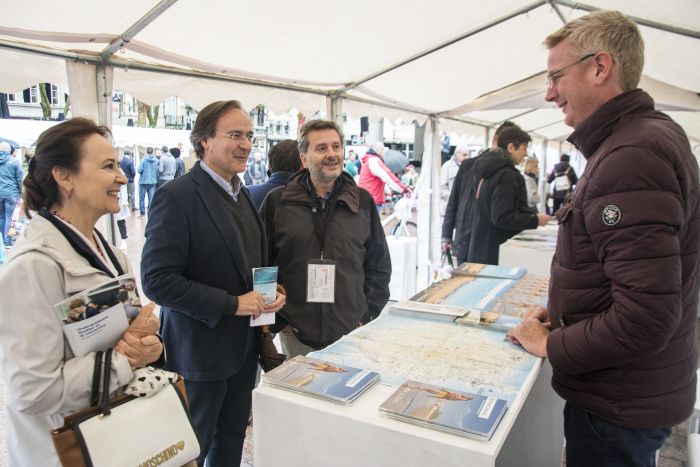
Through this unprecedented day in Luxembourg, Spain was presented as a tourist destination, along with the gastronomic, cultural and business offer that surrounds it. More than 8,000 attendees enjoyed the Journée de l’Espagne. The Ambassador of Spain in Luxembourg, Bernardo de Sicart Escoda, and the Prime Minister of Luxembourg, Xavier Bettel, among other public figures, visited the Place d’Armes to take part in the event.
TOURISM
In the stand of LuxairTours, attendees were able to get information about the travel offers of the company in Spain and its flight connections from Luxembourg. Moreover, they organized several activities, such as face painting for kids or a golf-corner to test the attendees’ swing abilities. Luxi, their mascot, also attended the event. The Luxembourgish tour operator was the main sponsor of the Journée de l’Espagne.
Multiple Autonomous Communities were present at the Place d’Armes with the objective of showing the diverse tourist offer of Spain. Representatives from Gran Canaria, Fuerteventura, Tenerife, La Rioja, Galicia, Ibiza, Extremadura and Andalucía showed the Luxembourgish audience their cultural and tourist offer, by providing detailed information of their different travel options. PortAventura, the Span ish leisure complex located in the province of Tarragona and the most visited in Spain, was also represented at the event.
ish leisure complex located in the province of Tarragona and the most visited in Spain, was also represented at the event.
SPORTS
Spanish sports, one of the best ambassadors of our country, were represented by the stands of LaLiga, the Davis Cup and Baqueira Beret.
On the one side, LaLiga gave the opportunity to the attendees to take pictures next to the cup and the players of their favorite football team through their photosharing. On the other side, the Davis Cup also took to Luxembourg the cup of the tournament so that the participants of the Journée de l’Espagne would be able to take pictures with it. Baqueira Beret, provided information about the ski resort of the Arán Valley.
GASTRONOMY
The Spanish gastronomy was the great protagonist of the Journée de l’Espagne. The attendees were able to enjoy a day in which the Spanish culinary richness that the participating companies took to Luxembourg was felt, tasted and explored through several traditional dishes, for instance, patatas bravas, churros with hot chocolate, Iberian ham, sangría, Spanish omelette, Padrón peppers… Churros Valyser, Bodega Salferso, The Cortador Academy and Bistro Podenco were the suppliers for the exquisite food and drinks of the day.
STUDYING IN SPAIN
There was also a corner for those interested in studying and learning Spanish in Spain. EF and Fundación de la Lengua Española informed attendees about the possibilities to travel to Spain to learn Spanish, one of the most spoken languages in the world. Moreover, IE University showed the wide range of degrees and masters that they have available in Spain.
REAL ESTATE
Zapinvest and Second Residence, in the real estate corner, presented their offer of apartments for sale in the main Spanish coasts, such as Costa Blanca, Costa del Sol, Costa Cálida, Mallorca or Tenerife.
ACTIVITIES
The day was completed with an ongoing cultural schedule.
The artist Carolina Tafalla made reflect on the perception of friendship through the situational happening “Amigo”. Along with several volunteers, she went across the city center of Luxembourg to establish a friendship with pedestrians.
 At the same time, the reknowed urban artist Miguel Ángel Belinchón, Belin, hypnotized with his postneocubist live painting that he finished at the end of the day. This time, he painted the Spanish actress Inma Cuesta.
At the same time, the reknowed urban artist Miguel Ángel Belinchón, Belin, hypnotized with his postneocubist live painting that he finished at the end of the day. This time, he painted the Spanish actress Inma Cuesta.
The six-times Flat BMX world champion, brand ambassador and influencer Viki Gómez carried out two exhibitions and a BMX workshop for kids.
During the day, several shows and concerts took place at the Place d’Armes. Vicky Villalba and her flamenco team started the day off with a sevillanas exhibition. Next, La Negra Albina impressed the audience with their Cumbia Psychotropic-Funk style. In the afternoon, Baïkonour, pleased spectators with their trip-hop, rock and electro concert.
The day ended with the shows of the DJs Alex Torres and James Go. Both created a more relaxed environment and cheered up the audience at the illuminated Place d’Armes.
WORKSHOP AND NETWORKING DINNER
On Friday 18th, within the Journée de l’Espagne framework, the Tourist Office of Spain in Belgium and Luxembourg organized a workshop at the Meliá Hotel in Luxembourg in which the participating Autonomous Communities and companies of the tourist sector met with Luxembourgish tour operators with the objective of presenting the Spanish tourist offer. Afterwards, the Chamber organized a networking dinner.
The Chamber and the Spanish Tourist Office thank the Embassy of Spain in Luxembourg, the Ville de Luxembourg and all the participating companies their collaboration for the great end result of this event.
 |
 |
 |
 |
 |
 |
 |
 |
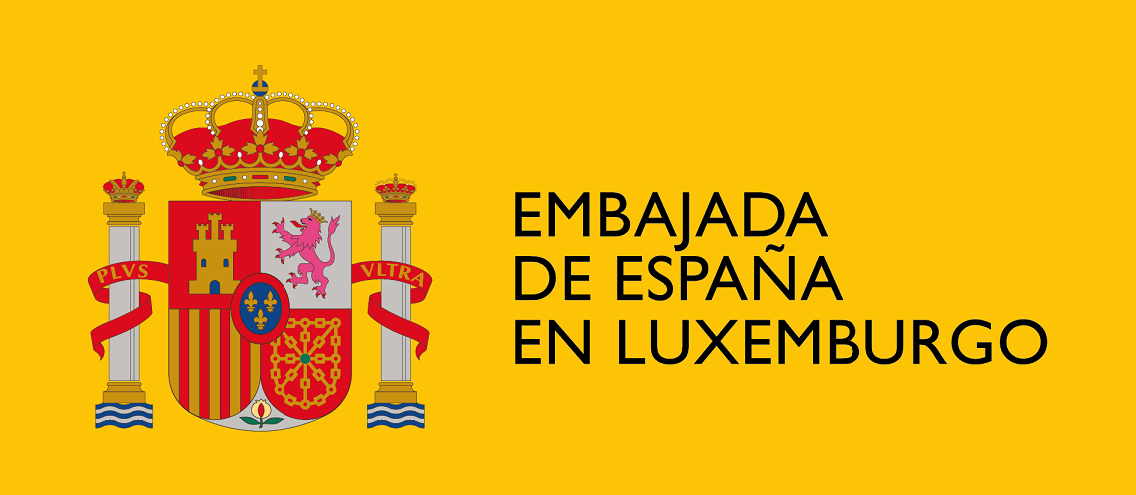 |
 |
 |
 |
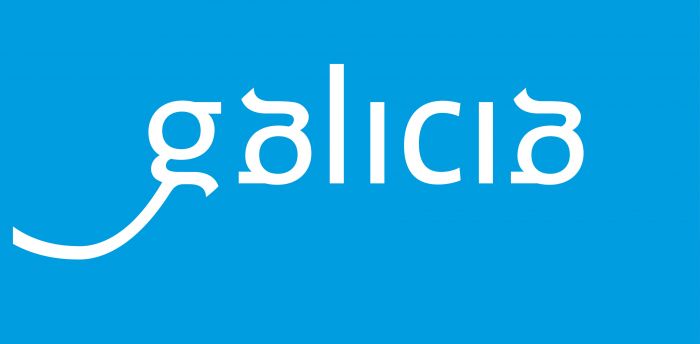 |
 |
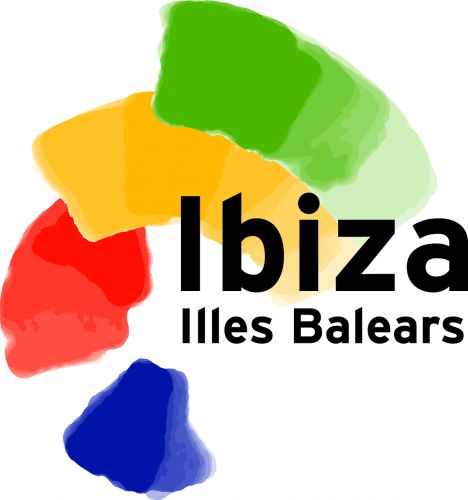 |
 |
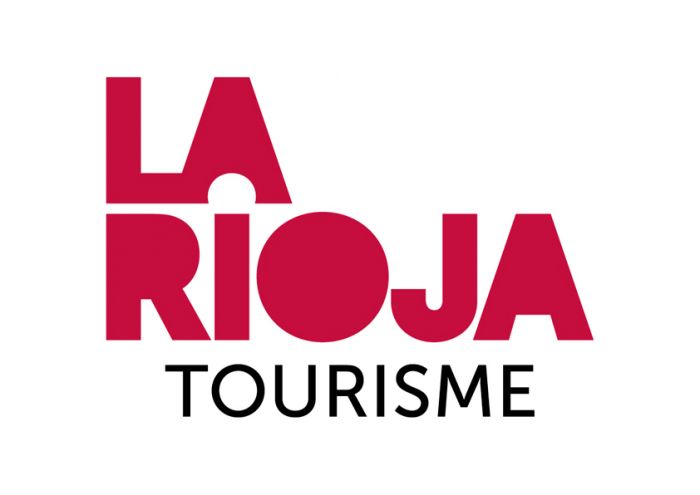 |
 |
 |
 |
|
 |
 |
 |
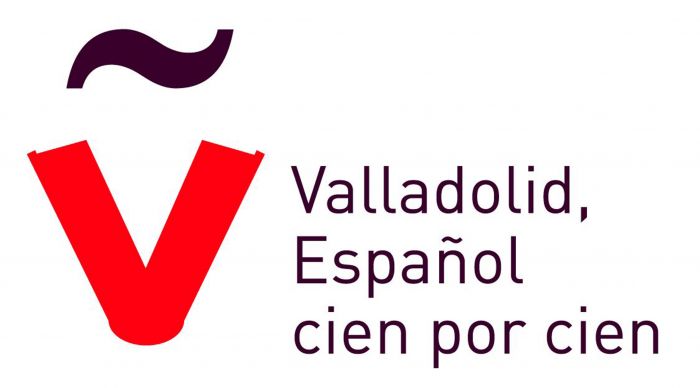 |
 |
 |
The Embassy of Spain in Belgium celebrates the National Holiday
On October 9th, the Embassy of Spain in Belgium organized a reception at the Palais des Académies of Brussels on the occasion of the celebration of the National Holiday.
The reception was attended by local authorities, diplomats, businessmen, European officials and representatives of Spanish public institutions, among other personalities.
H.E. Ambassador of Spain in Belgium Beatriz Larrotcha Palma thanked the attendees for their participation in the National Holiday and highlighted bilateral relations in tourism, business and institutional between Belgium and Spain. The Permanent Representative to NATO, H.E. Ambassador Miguel Ángel Fernández Palacios, also presided the reception.
Both thanked the companies and sponsoring institutions for their collaboration in organizing the event, which was held in collaboration with the Official Chamber of Commerce in Belgium and Luxembourg, was sponsored by our associated enterprises Everis, Iberdrola, Indra, Interparking, LaLiga, GAP, BBVA, Santander Consumer Bank, Hispania Brussels and Quality Media.
The offices of the Autonomous Communities in Brussels also contributed to the success of the reception thanks to the contribution of products and typical wines of each region.
ABOUT US
The Official Spanish Chamber of Commerce in Belgium and Luxembourg is a non-profit association whose main objective is the development of trade and investments between Spain, Belgium and Luxembourg. The Chamber offers to the companies a wide range of commercial and promotional services as well as professional contacts and facilitates business networking among its partners.
CONTACT
Belgium
Avenue des Arts 1-2,
1210, Brussels, Belgium
Tel. +32 2 517 17 40
info@e-camara.com
Luxembourg
Tel. +352 661 404 399
luxemburgo@e-camara.com




